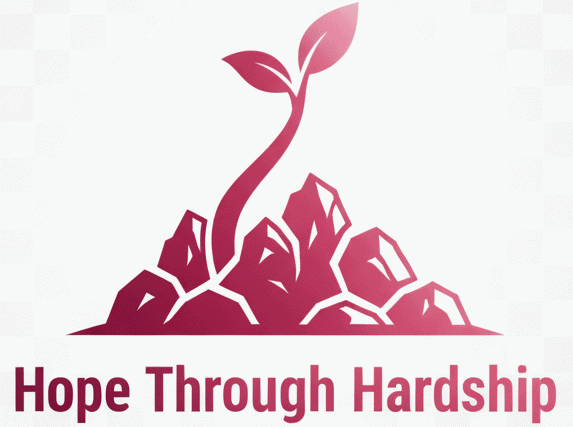
Transforming your life doesn’t require years of struggle—it demands strategic focus over precisely thirty days. The 30-day habit approach revolutionizes personal development by concentrating your energy into manageable timeframes that generate extraordinary results. Unlike vague resolutions that stretch indefinitely, this methodology harnesses psychological momentum and neurological rewiring to create genuine, lasting behavioral changes that compound over time.
Scientific research reveals fascinating insights about habit formation timelines. More relevant research found that automaticity plateaued on average around 66 days after the first daily performance, although there was considerable variation across participants and behaviours. However, the initial 30-day habit period establishes crucial foundations that make long-term success exponentially more achievable than sporadic efforts.
The beauty of the 30-day habit lies in its psychological accessibility. Thirty days feels manageable even for the most challenging behaviors, yet provides sufficient duration to experience tangible progress and build genuine momentum. This timeframe transforms overwhelming lifestyle changes into exciting monthly adventures that you can complete successfully.
The Neurological Architecture of 30-Day Habit Formation
Your brain operates through synaptic plasticity, constantly reshaping neural pathways based on repeated behaviors and experiences. During your 30-day habit journey, remarkable transformations occur within your prefrontal cortex, basal ganglia, and reward processing centers. These changes explain why habits that initially require tremendous willpower gradually become effortless and automatic.
Week one presents the greatest challenge as your brain resists unfamiliar patterns. Cognitive load remains high because your prefrontal cortex must consciously override established behavioral defaults. However, each successful repetition strengthens new neural pathways while weakening old ones through competitive plasticity mechanisms.
By week two, myelin production accelerates around your developing habit pathways, improving signal transmission speed and efficiency. This biological process explains why your 30-day habit begins feeling more natural during the second and third weeks. Your brain rewires itself to support your new behaviors, reducing the mental effort required for consistent execution.
Week four represents the consolidation phase, where your new behaviors begin integrating with your existing identity and lifestyle patterns. Studies suggest that, on average, it can take anywhere from 18 to 254 days to form a new habit. The 30-day habit approach positions you well within this range while building the psychological foundation for long-term success.
Strategic Categories for Maximum Impact
Health and wellness habits form the cornerstone of transformative 30-day habit challenges. Consider focusing on daily exercise, consistent sleep schedules, proper hydration, and nutritious eating patterns. These physiological improvements create cascading effects that enhance energy levels, mental clarity, and overall life satisfaction. Physical habits often provide the most immediate feedback, making them excellent choices for your first 30-day habit experiment.
Productivity and learning habits accelerate professional and personal growth through focused skill development. Dedicate thirty days to reading daily, writing consistently, learning new languages, or eliminating time-wasting activities. Though seemingly small, our daily habits ultimately determine the kind of life we live. Which means we can change our lives simply by changing the little things we do each day. These cognitive enhancement habits create valuable assets that continue generating returns long after the initial month concludes.
Mindfulness and emotional regulation habits target your psychological foundation through practices like meditation, gratitude journaling, deep breathing exercises, or positive self-talk. These mental wellness practices develop emotional intelligence and stress management capabilities that benefit every aspect of your life. The 30-day habit timeframe provides sufficient exposure to experience meaningful psychological benefits while building sustainable practices.
30-Day Habit Tracking Table
| Week | Focus Area | Daily Actions | Success Metrics | Common Challenges |
|---|---|---|---|---|
| Week 1 | Foundation Building | Start simple, focus on consistency | Complete 5-7 days successfully | Motivation dips, forgetting habits |
| Week 2 | Momentum Development | Increase difficulty slightly | Maintain 80%+ completion rate | Boredom, questioning effectiveness |
| Week 3 | Integration Phase | Link habits to existing routines | Feel habits becoming more natural | Complacency, skipping “just once” |
| Week 4 | Consolidation | Prepare for long-term sustainability | Plan post-30-day continuation | Overconfidence, planning next challenges |
Implementation Strategies for Unshakeable Success
Habit selection methodology determines whether you’ll achieve transformational results or abandon efforts within the first week. Choose behaviors that align with your core values while remaining realistically achievable given your current circumstances. Your 330-day habit should challenge you without overwhelming your existing capacity or creating unsustainable stress levels.
Environmental design dramatically influences your success probability by minimizing friction around positive behaviors while increasing barriers to negative patterns. Use it to record completed exercise routines, daily meditation, water intake, healthy meals eaten, sleeping habits, and other activities that promote good health and well-being. Create physical and digital environments that support your 30-day habit through strategic placement of tools, reminders, and accountability systems.
Progress tracking systems provide essential motivation and accountability throughout your transformation journey. Track your daily habits with our free Habit Tracker printable! All month long, fill in up to 19 good habits you’re working on each day. Visual progress markers like calendars, apps, or journals allow you to celebrate daily victories while maintaining momentum during challenging periods.
Beyond 30 Days: Sustaining Long-Term Transformation
The 30-day habit serves as a launching platform for permanent lifestyle evolution, not just a temporary experiment. Habits can form within 21 days. Our research indicates that habit formation typically requires a duration of 2 to 5 months for most health behaviours to become automatic. Your initial thirty-day period creates the foundation for extended habit development and long-term behavioral change.
Progressive habit evolution maintains transformation momentum by building upon established foundations. If your first 30-day habit focused on physical fitness, your next challenge might target nutritional improvements or stress management techniques. This sequential development approach creates comprehensive life improvements rather than isolated behavioral changes.
Success in 30-day habit challenges often surprises participants with how profoundly focused intention can reshape entire life trajectories within a month. You’ll develop meta-skills like discipline, consistency, and self-trust that become invaluable assets for tackling any future challenges or goals. These psychological resources compound over time, making each subsequent 30-day habit more effective and enjoyable than the previous iteration.
The transformation you’ll experience extends far beyond specific behaviors you’re targeting. Remember how I told you about the research that confirmed we need 66 days to form a new habit? While complete automaticity may require longer periods, your 30-day habit provides the crucial foundation that makes extended habit development feel natural and sustainable rather than forced or overwhelming.

